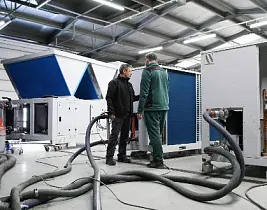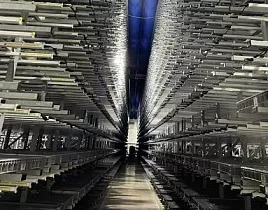Linde Engineering announced its Linde Kryotechnik subsidiary has signed a contract to supply the CERN laboratory in Geneva, Switzerland, with two identical helium cryogenic refrigeration systems. The company has already supplied systems providing more than 50 percent of the refrigeration capacity required for the LHC.
The Large Hadron Collider (LHC) is the most powerful particle accelerator ever built, allowing physicists to test the predictions of different theories of particle physics. The accelerator sits in a tunnel 100 metres underground at CERN, the European Organization for Nuclear Research.
“CERN’s Large Hadron Collider is the largest cryogenic system in the world,” says Lars Blum, Managing Director of Linde Kryotechnik AG. “We have been delivering sophisticated refrigeration systems to CERN since 1986. To be selected for the most significant upgrade of the LHC since its start-up in 2008 speaks to our track record in reliable and efficient solutions, even in the most complex research environments.”
Each refrigeration system will have a capacity of 3.25 kilowatts at 1.9 Kelvin (-271 °C), which is close to absolute zero. The plants are required for a High-Luminosity upgrade to the LHC. The LHC collides tiny particles of matter (protons) at an energy of 13.6 TeV (Tera electron Volt) center of mass in order to study the fundamental components of matter and the forces that bind them together. The upgraded LHC will make it possible to study these in more detail, increasing the number of collisions by a factor of between five and seven.
For each of the plants, Linde Engineering will deliver a compressor system, a surface cold box measuring 14 meters in length and 3.5 meters in diameter, an underground cold box with a length of 7 meters and a diameter of 2.5 meters, and a vacuum insulated piping network to connect the two cold boxes. The surface cold box will cool the helium to 4.5 Kelvin (-269 °C), and the second cold box about 90 meters underground will provide the required 1.9 Kelvin (-271 °C). Linde Engineering will also be responsible for installation and final commissioning. Handover to CERN is scheduled for mid-2026.
Research facilities at renowned universities and institutes, such as CERN in Geneva, require low-temperature cooling that can be delivered by large cryogenic refrigeration units only.


